Key areas in economic cooperation between the two countries
In his opening speech, Mr. Vu Ba Phu, Director of the Trade Promotion Agency ( Ministry of Industry and Trade ), said that Korea is one of Vietnam's leading important trade partners, with strong and comprehensive economic and trade cooperation. The two countries aim to increase bilateral trade turnover to 150 billion USD by 2030, in a more balanced direction. Currently, Korea is Vietnam's third largest trade partner (after China and the United States), and is also the largest direct investor in Vietnam.
The electronics industry plays a key role in bilateral economic cooperation, accounting for a large proportion of import-export turnover and is one of the sectors attracting the most FDI from Korea to Vietnam. Korean corporations and enterprises have made important contributions to the development of the global electronics supply chain in Vietnam, creating jobs, transferring technology and improving domestic production capacity.
Mr. Vu Ba Phu, Director of the Department of Trade Promotion, Ministry of Industry and Trade, delivered the opening speech at the seminar.
Leading corporations such as Samsung, LG, SK Hynix have invested tens of billions of USD in Vietnam, turning Vietnam into a large-scale electronics manufacturing and export center of the world . Samsung currently accounts for about 20% of Vietnam's total export turnover, with factories in Bac Ninh, Thai Nguyen and Ho Chi Minh City; LG focuses on producing screens and home appliances in Hai Phong; SK Hynix expands investment in the semiconductor sector.
According to the leader of the Trade Promotion Agency, Korean electronics projects not only bring in large FDI capital but also create jobs for hundreds of thousands of workers, promote technology transfer, improve management skills, increase the localization rate and develop Vietnam's supporting industry.
Sharing the same view, Mr. Bok Dug Gyo, Head of Korea Desk, commented that Vietnam is affirming its position as an important global manufacturing center, attracting the attention of international investors in many high-tech fields. This is clearly demonstrated through key industries such as home appliances, consumer electronics, renewable energy and electric vehicles.
The consumer electronics and home appliances industry is growing strongly with key products such as televisions, refrigerators, washing machines, and smartphones. The domestic home appliances market is estimated at 12.5-13 billion USD and is expected to continue to grow. The presence of multinational corporations such as Samsung and LG has turned Vietnam into a global manufacturing base.
The semiconductor and components industry is also growing, although it still relies on imported raw materials. Electric vehicles, renewable energy, medical equipment and lighting are emerging as potential new sectors.
From the association's perspective, Ms. Do Thi Thuy Huong, Executive Committee Member of the Vietnam Electronic Enterprises Association, informed that the electronics industry is always at the top of the largest export group in the country, with a turnover of 126.7 billion USD in 2024, accounting for over 30% of the country's total export turnover.
“ We have the advantage of a young, skilled workforce of more than 1 million engineers and workers; and an attractive investment support policy system such as high-tech industrial parks in Ho Chi Minh City, Hanoi and Da Nang. Furthermore, Vietnam is actively participating in new-generation free trade agreements such as CPTPP, EVFTA and RCEP, creating favorable conditions for the global supply chain, ” Ms. Huong emphasized.
Synergy to build supply chain
Despite its great contribution to the economy, Vietnam's electronics industry still faces many challenges: dependence on imported raw materials and components from China, South Korea and other countries; technology gap between FDI enterprises and Vietnamese enterprises; increasingly high requirements on quality standards, environment and sustainable development.
To make Vietnam-Korea cooperation more effective, Ms. Do Thi Thuy Huong made specific proposals. Among them, technology transfer and human resource development: Korean enterprises can cooperate with the Vietnam Electronic Enterprises Association and domestic organizations to implement training programs and seminars on advanced technologies such as AI, IoT, semiconductor chip manufacturing; and at the same time, build a joint research center in Vietnam.
Speakers discuss at the seminar
Investment and supply chain linkage: Expand joint venture projects, build factories to produce high-end electronic components to reduce import dependence and increase added value; cooperate to develop smart electronic products for the ASEAN market.
Promoting trade and market access: Organizing joint fairs and exhibitions; establishing online B2B platforms; cooperating in research and development of green, environmentally friendly products in line with sustainable trends.
“ These proposals not only bring economic benefits but also strengthen the Vietnam-Korea friendship, especially in the context of the two countries celebrating the 30th anniversary of establishing diplomatic relations and upgrading their comprehensive strategic partnership ,” Ms. Huong shared.
Representing Korean businesses, Mr. Kim In Woo, Vice President of the Korean Business Association in Vietnam, also made a similar proposal, emphasizing the building of an electronic ecosystem that focuses on intellectual property rights. “This is a solid foundation to support the development of many other industries,” he said.
The Vice President of the Korean Business Association in Vietnam also emphasized the training of talents, especially human resources that meet the practical requirements of the industry. To do this, it is necessary to strengthen cooperation between schools and businesses, with the direct participation of businesses in building and operating training programs.
Source: https://moit.gov.vn/tin-tuc/xuc-tien-thuong-mai/toa-dam-doi-thoai-chinh-sach-viet-nam-han-quoc-co-hoi-xuc-tien-dau-tu-nganh-dien-tu.html


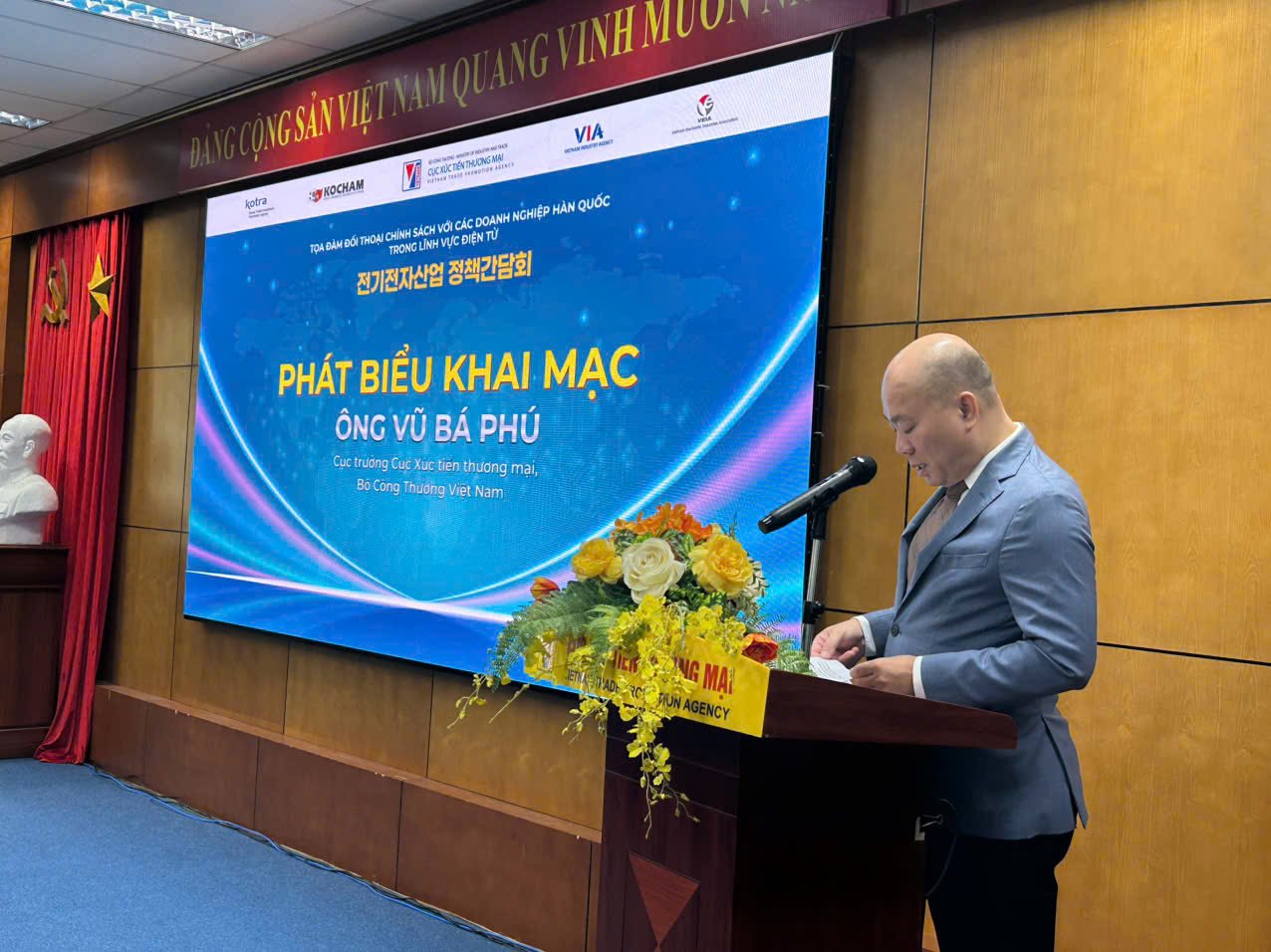
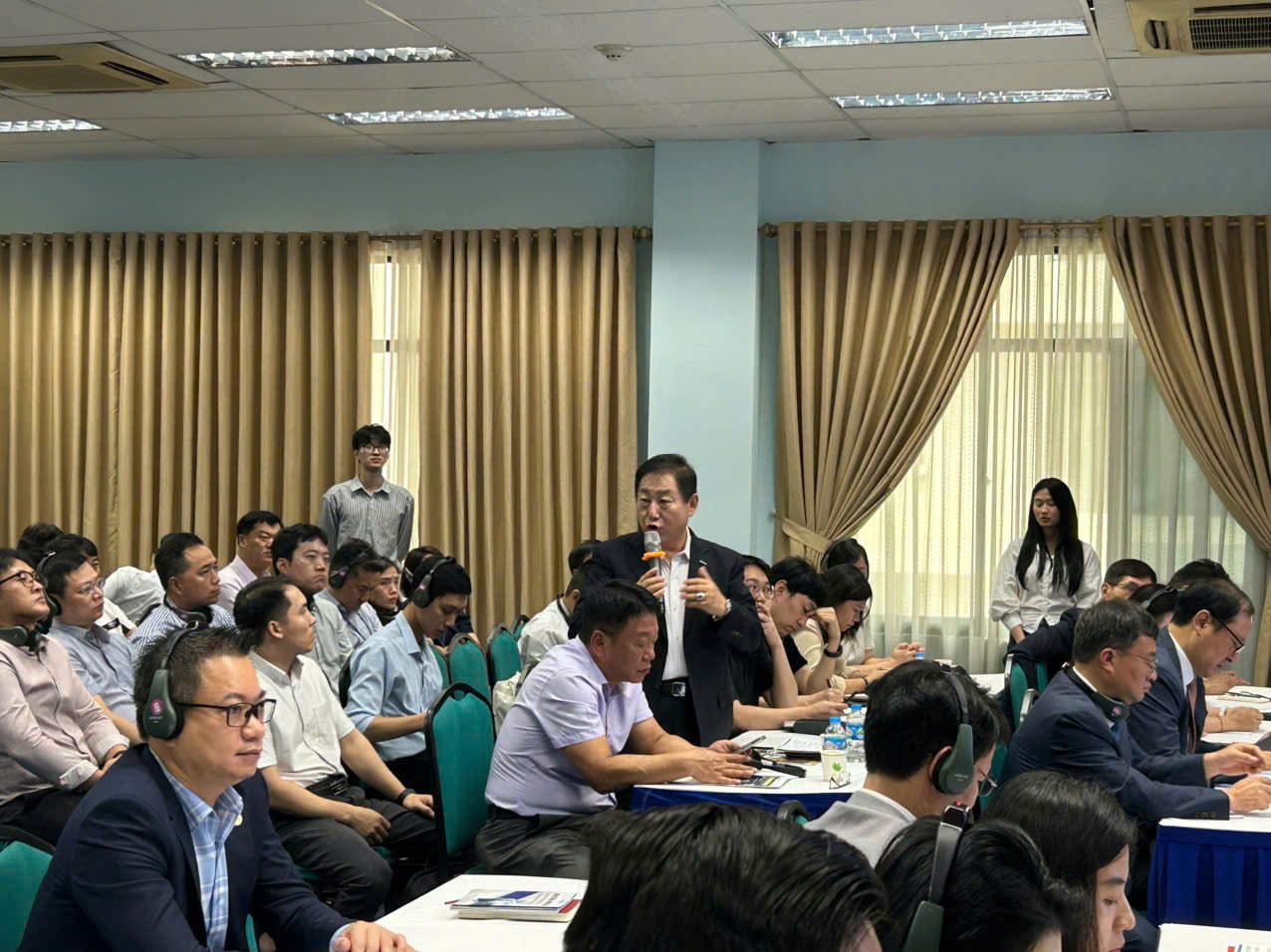

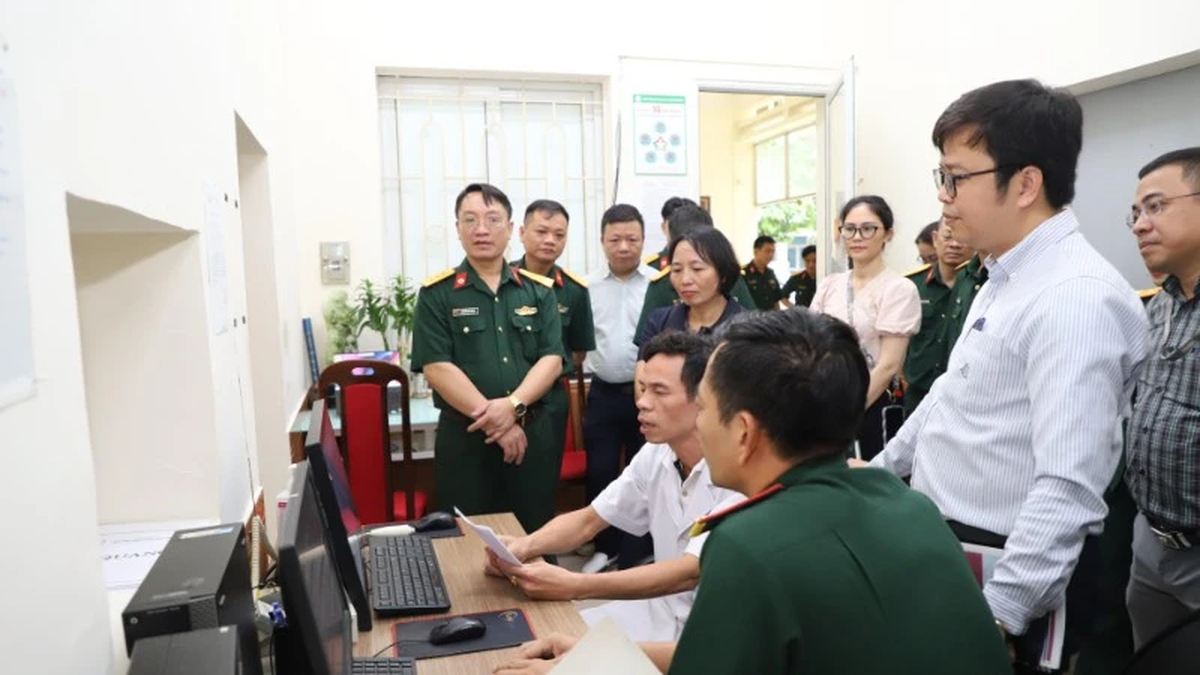






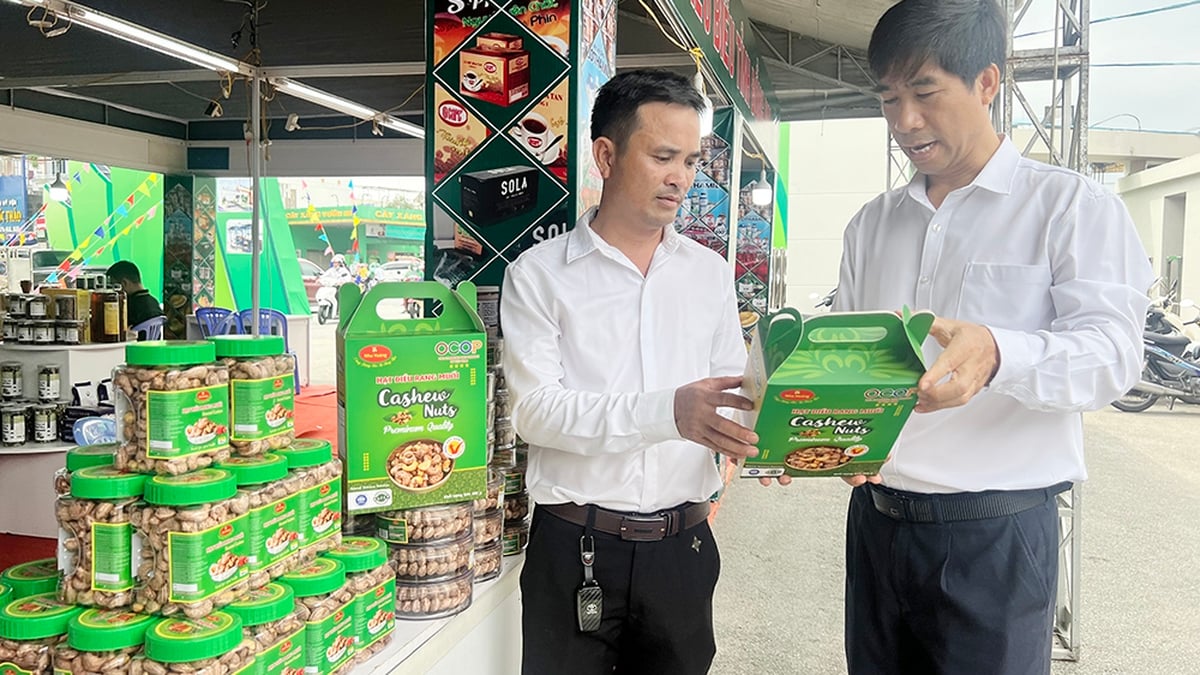











![[Photo] Prime Minister Pham Minh Chinh attends a special art program called "Hanoi - From the historic autumn of 1945"](https://vphoto.vietnam.vn/thumb/1200x675/vietnam/resource/IMAGE/2025/8/15/c1c42655275c40d1be461fee0fd132f3)


![[Photo] Binh Khanh Bridge Ho Chi Minh City is ready to reach the finish line](https://vphoto.vietnam.vn/thumb/1200x675/vietnam/resource/IMAGE/2025/8/14/b0dcfb8ba9374bd9bc29f26e6814cee2)


![[Photo] The special solidarity relationship between Vietnam and Cuba](https://vphoto.vietnam.vn/thumb/1200x675/vietnam/resource/IMAGE/2025/8/15/5f06c789ab1647c384ccb78b222ad18e)
![[Photo] Firmly marching under the military flag: Ready for the big festival](https://vphoto.vietnam.vn/thumb/1200x675/vietnam/resource/IMAGE/2025/8/15/86df2fb3199343e0b16b178d53f841ec)

![[Photo] Prime Minister Pham Minh Chinh talks on the phone with Cambodian Prime Minister Hun Manet](https://vphoto.vietnam.vn/thumb/1200x675/vietnam/resource/IMAGE/2025/8/15/72d3838db8154bafabdadc0a5165677f)





















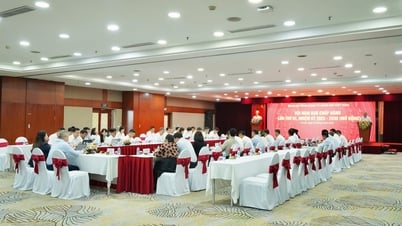










![[Photo] President Luong Cuong receives Finnish Ambassador to Vietnam Keijo Norvanto](https://vphoto.vietnam.vn/thumb/402x226/vietnam/resource/IMAGE/2025/8/15/9787f940853c45d39e9d26b6d6827710)


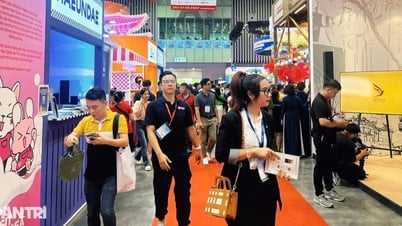


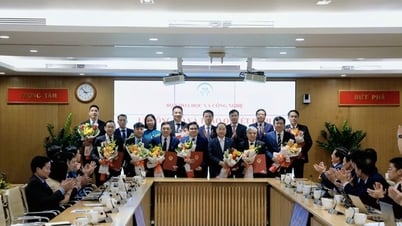

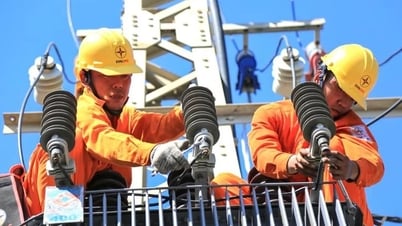





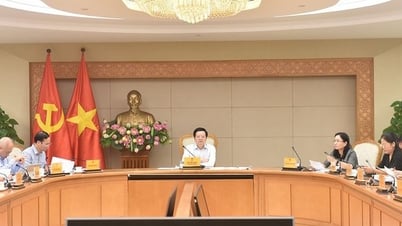





















Comment (0)